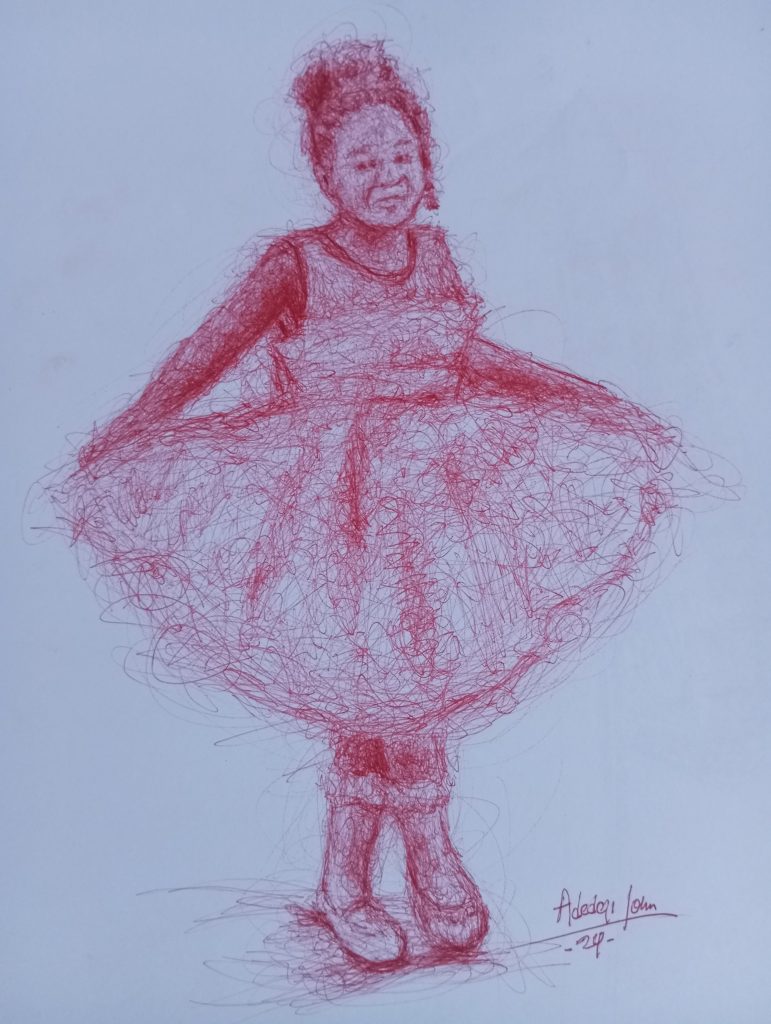My friends have turned it into a game: how badly will the substitute teacher butcher my name? So far, “Qianqi” has been mangled into Kyankey, Chonky, and Jonjee, as the most egregious errors. The actual pronunciation in Mandarin Chinese is “chian-chi,” but I usually spare them from further embarrassment and tell them to call me Roger instead.
Roger is my middle name. It fits my background as someone born in Nashville, Tennessee, and spent his entire life in the United States. Qianqi fits my face, even though I spent years wishing it didn’t. My unpronounceable name seemed to flag me as a foreigner whenever people tripped over the consonants. Among the Steves and Kates at my school, I was the odd one out.
Some people might have embraced their cultures more out of defiance, but I was uncomfortable about sticking out from the crowd. Since my town had a large Jewish population, I ended up knowing the dates for Rosh Hashanah and Yom Kippur better than Chinese New Year or the Mid-Autumn Festival. I attended my friends’ b’nai mitzvah ceremonies, all while refusing to bring any home-cooked meals that might have smelled weird to lunch. Although I could carefully control many aspects of my life, one thing troubled me the most: my name.
Finally, I went to talk with my parents about legally changing my name. The mispronunciations, misspellings, and stereotypes associated with having an Asian name had created a constant feeling of isolation as if I hadn’t lived in this country all my life. I felt that my own name was stripping away my American identity, leaving only the narrow perception of my Chinese ethnicity, a part of me I had grown to be ashamed of.
To my surprise, my parents were not upset; instead, they patiently spoke about their intention behind giving me a unique name like Qianqi. They had hoped it would shape my individuality and encourage me to carve out my own path in life. “We know you are American,” they told me, “and you should be proud. But you are also blessed with a rich Chinese heritage. We take you to weekend Chinese classes so that you can learn the language of your ancestors. We teach you Chinese history so that you can understand where you came from. We immerse you in Chinese traditions so that your life can be enriched by another culture. We hope all these elements will set you apart, just like your name.”
At that moment, I began to see “Qianqi” in a new light. Rather than striving to fit in as one of 425,514 Rogers in the United States, it is more meaningful to be myself as Qianqi.
The newfound appreciation of my name took me on a journey to not only embrace my heritage but also celebrate it. Once I accepted Qianqi, I started to fall in love with the name. I began to learn the meaning of the two Chinese characters that make up my name. Qian, the first character, means “one thousand,” while Qi means “wonders.” “When you put Qian and Qi together, it represents many wonders,” my mom tells me with great pride, claiming that it suits me perfectly, because it reflects the worth and potential she sees in me. I learned to write the two Chinese characters stroke by stroke in their block-like structure. Dating back thousands of years, Chinese characters are logographic, meaning each character has its unique stroke order. Now whenever someone tries to pronounce my name, I would welcome the chance to teach them how to say “q” in Chinese: it is a soft “ch.” It’s that simple.
Instead of hiding my name, I took it as an invitation to look deeper into my heritage, starting with my family name, Ye. My dad told me that it was actually a shortened form of Yehenala, a bloodline that can be traced back to Aisin Gioro Nurhaci, whose successors completed the Manchu conquest of China that led to the Qing Dynasty in 1636. Under the Qing Dynasty, the Yehenala clan held the highest positions in the imperial court and produced several of China’s most extraordinary emperors. The discovery blindsided me, since my last name only ever came up in endless terrible puns for “yeah.” But my last name had history to it. It had an entire dynasty behind it. And it was linked to another culture as well.
In the past, Chinese American youth considered themselves Americans, only to be called “others” when they ventured outside home. Am I an “other” still, if only within my own mind?
I have struggled with this sense of in-betweenness for as long as I can remember. Just as Qianqi and Ye both carry ties to my background, so does Roger. As first-generation immigrants, my parents hope to pass on the traditional Chinese values and philosophy that have lasted for over five thousand years. But I was born in Nashville and grew up in New York City – American youth culture is the only one I have been exposed to. Within me lies a combination of the influences from my Chinese family with all its strengths and flaws, my personal perspective shaped by the individuality and rebellion inherent to American teenagers, and the broader world with all the assumptions people make when they see my name and face. The richness of American and Chinese cultures has contributed in incredible ways to the Qianqi Roger Ye that I am today. Rather than seeing the struggle as a betrayal, I now see that the process exists in every generation and in everyone. Born Chinese by heritage and raised American by culture, I carry both the legacy of my ancestors and the opportunities of this great nation. In balancing the two cultures, I will keep looking for my equilibrium.
Just as I am typing these last words, a call comes in from my best friend Srijit.
“Do I look too Muslim?” Srijit asks, voice shaking.
My heart sinks. I know why he is asking the question: he’s been attacked, again. Since the Israel war began on October 7, Srijit has been called a Hamas supporter and spat at. I also know how he is feeling: confused and afraid, just like how I felt after COVID-19 fueled anti-Asian racism and xenophobia. His question cuts straight to the core of my being, because I, too, used to tell my parents I hated my narrow eyes and pushed-in nose, features that make me look too Asian.
The Islamophobia ignited by the Israel-Hamas war is all-too-familiar to me in the wake of COVID-19, with the onslaught of anti-Asian hatred. My face has made me a target for racists and fearmongers. People who look like me were in the national news because they were harassed, beaten, killed. Asian Americans were portrayed as threats, even as we became the victims. It doesn’t matter that I was born in Nashville and lived my entire life in the United States. It doesn’t matter that I love American football and English literature. My eyes and my name mark me as an outsider.
Srijit’s family is from Bangladesh. His appearance should be something he takes pride in. Instead, he wants to cover himself up so he can feel safe. So he can live his normal life.
The reality that Srijit and I, in the 21st century, find ourselves wishing to dissociate from our background because we don’t want to live in fear isn’t tragic – it’s enraging. I am angry, really angry. It’s a primal rage that questions the very fabric of progress and challenges the facade of acceptance in our society. It’s a collective frustration, a cry for change in a world that clings to stereotypes and biases.
Do I cover my face and accept the label of “other?” Do I remove Qianqi and pretend to be Roger?
If that’s the price for belonging in America, then it isn’t the America I’m interested in belonging to. Writer and poet Audre Lorde writes, “It is not our differences that divide us. It is our inability to recognize, accept, and celebrate those differences.” To heal a divided world, we need to acknowledge our individual and collective differences. Acceptance is always our choice to make, after all. And I hope we choose to see people as they are. Before judging the hijab, let’s face the fear of the unknown that makes us uneasy. Before dismissing the accent, let’s confront the subconscious biases that make us speak differently. Before silencing the voice, let’s challenge the assumptions that make us ignorant.
For me, acceptance begins within. The people who hate us for how we look and where our families came from want us to turn away from our background. So instead of rejecting mine, I choose to celebrate. I celebrate my parents’ accents, my face, my unpronounceable name.
I’m Qianqi and Roger. I am not either-or, I am both.
Yifei K. Niu is a Junior at Phillips Academy in Andover, Massachusetts, where he founded a sports newspaper called The GOAT and captains the varsity tennis team. He is heavily involved with sports journalism and loves to report on topics that deserve more recognition in the world.

